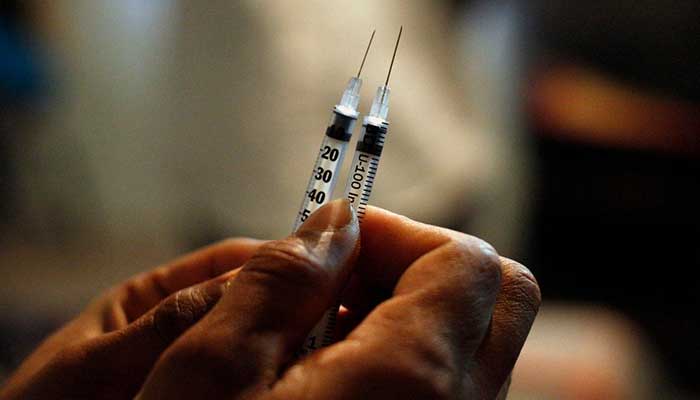Viral hepatitis deadlier than COVID-19 in Pakistan, say health experts
An estimated 15 million people are carrying hepatitis B and C, infecting others without being aware of it
July 26, 2020

Health experts and gastroenterologists have warned that viral hepatitis is deadlier than COVID-19 in Pakistan as it is resulting in an estimated 300 daily deaths.
Similar to the coronavirus, people in Pakistan are infected with hepatitis B and C in the country. An estimated 15 million people, said the health experts, are carrying the infection and spreading it to other people unknowingly.
Dr Lubna, a senior consultant gastroenterologist, highlighted the importance of not neglecting hepatitis B and C, as she addressed an online awareness session in connection with World Hepatitis Day 2020 on Saturday.
“Hepatitis B and C are several times more lethal viral diseases than the coronavirus infection and resulting in around 300 to 325 deaths daily in Pakistan, while COVID-19 is causing far fewer casualties than viral hepatitis.
“WHO says that approximately, five and 10 million people are infected with hepatitis B and C respectively in Pakistan. Thousands of new patients are added every year due to lack of prevention, testing and treatment resources as well as inadequately screened blood transfusion, improperly sterilised invasive medical devices and unsafe injections," she added.
Dr Lubna said, who is a consultant both at the Liaquat National and Aga Khan hospitals, said "Finding the Missing Million" was the theme for the World Hepatitis Day 2020, which meant that around 290 million people were living with viral hepatitis in the world without knowing their health status.
“Without finding the undiagnosed and linking them to care, millions will continue to suffer, and lives will be lost. On World Hepatitis Day, to be observed on 28 July, we call on the people and authorities in Pakistan to take action and raise awareness to find the missing millions,” she said, adding that the youth must be involved to create awareness about viral hepatitis, which was a more lethal, painful and costlier disease as compared to COVID-19.
President Pak G.I. and Liver Diseases Society Dr Sajjad Jamil said that people and their families could be saved from the lethal, blood-borne infection if they were made aware of the preventive measures of hepatitis.
“In addition to coronavirus, there is an urgent need to create awareness about other communicable diseases, especially hepatitis B and C in Pakistan," said Dr Jamil, a consultant at Liaquat National Hospital. "We have over 15 million infected with these viruses but the majority are unaware of their health status. Most of these people only come to know about their disease when it is too late," he revealed.
"There is an urgent need to screen the entire Pakistani society for hepatitis B and C,” he observed.
Pakistanis need to be screened for hepatitis: health experts
Renowned gastroenterologist Dr Shahid Ahmed, who is associated with the Darul Sehat Hospital Karachi, said the key causes of liver cirrhosis and cancer was hepatitis.
“The message on World Hepatitis Day 2020 is very clear that every Pakistani needs to be screened for hepatitis B and C so that those who test positive could be treated. We daily see patients with liver cirrhosis which is the last stage of the liver disease due to viral hepatitis. It also leads to hepatocellular carcinoma or cancer of the liver, which is a serious illness, and in most cases, it leads to death if a liver transplant is not performed. The best solution to avoid these conditions is early screening and if the result is positive, start treatment.”
Eminent hepatologist from Jinnah Postgraduate Medical Center (JPMC) Dr Nazish Butt said that as most people living with hepatitis remained unaware, they could require repeated hospitalisation, expensive medicines and liver transplants, causing major financial burdens for their families as well as for the health system.
In many cases, patients die within one to three years as they get access to testing and treatment very late, she added.
Originally published in The News











